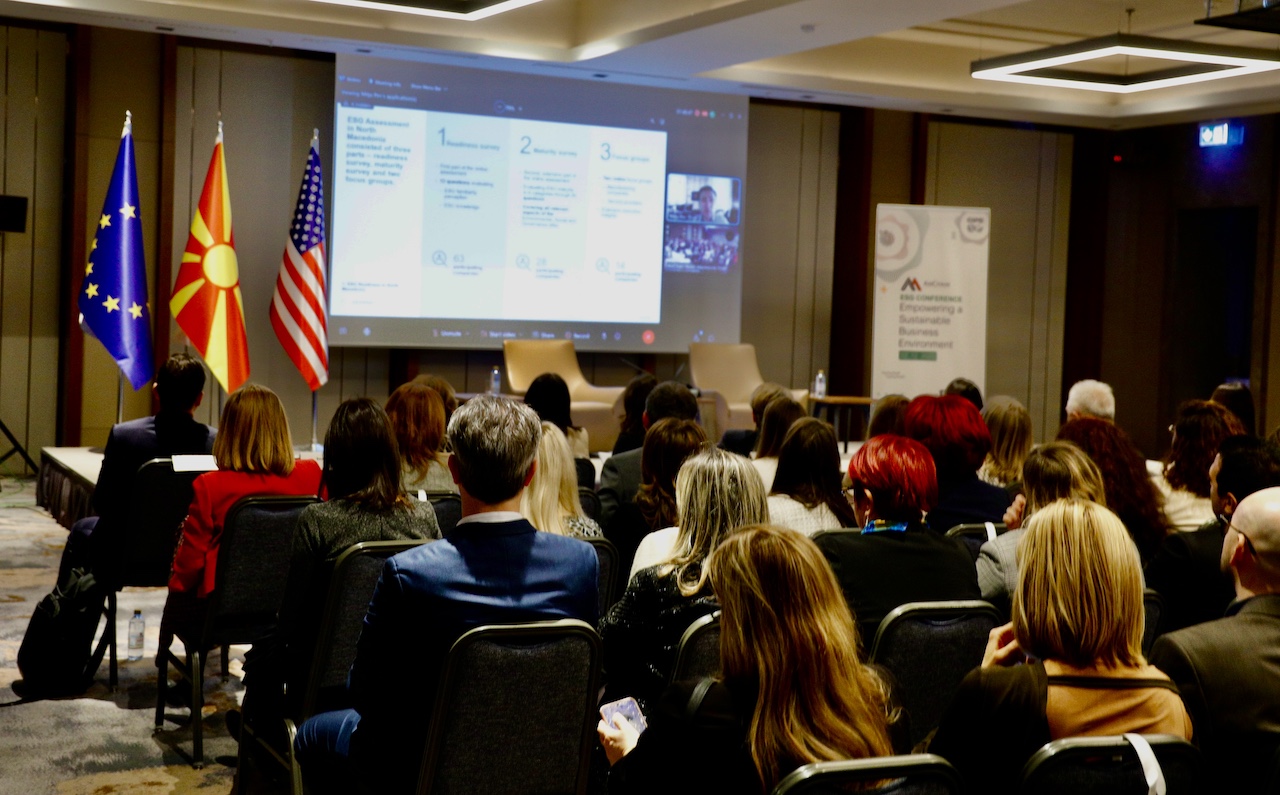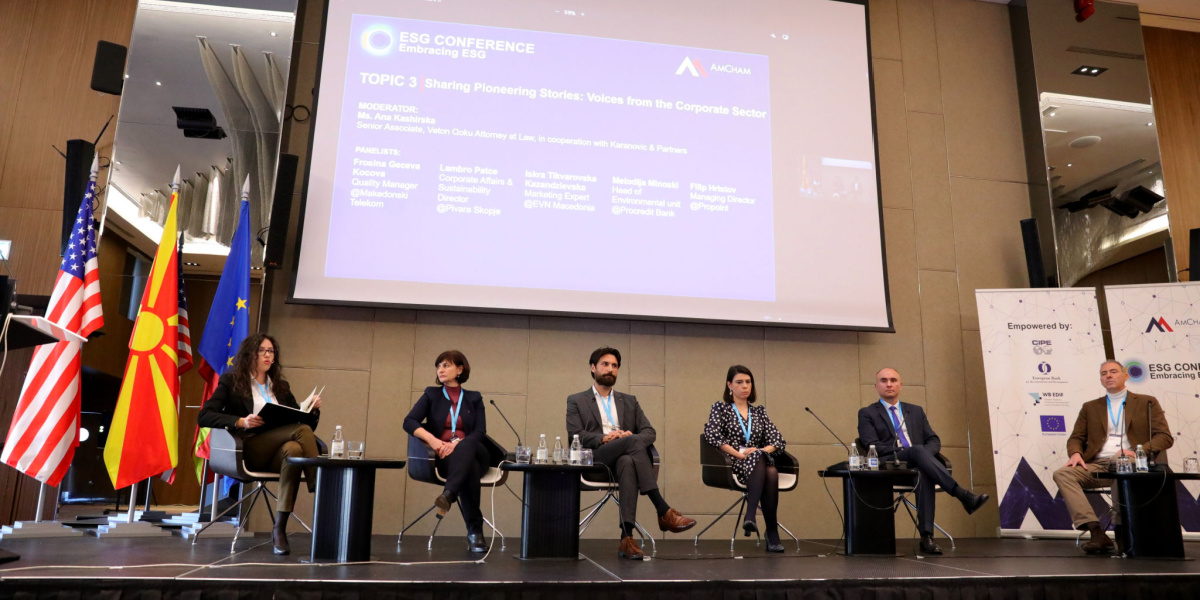Under the title “Encouraging a sustainable business environment,” a conference focusing on ESG standards for the environment, social issues, and governance (ESG – Environment, Society, Governance) took place yesterday in Skopje. The event is organized by the American Chamber of Commerce in North Macedonia (AmCham), with the support of the Washington Center for International Private Enterprises (CIPE).
“We support this project because we understand that an effective sustainability strategy represents a crucial competitive advantage for businesses in the modern global economy. The ability to provide detailed information about your operations to potential investors and business partners mitigates risks, ensuring continued market access and reducing the likelihood of regulatory violations. We decided to cooperate with AmCham regarding this issue because we firmly believe that compliance with sustainable practices is crucial for further connecting the private sector in North Macedonia with international supply chains,” said Michelle Krims, Deputy Director, Center for Anti-corruption and Governance at CIPE in her address to the audience.
Mitja Pirc, director of the consulting company Kearney Slovenia, addressed the event, presenting key findings from the analysis of readiness and maturity for the implementation of ESG standards among Macedonian companies. According to him, almost half of the companies that participated in the research claimed to be well acquainted with ESG concepts, but the analysis showed that they often overestimate their understanding and knowledge of these standards.
Pirc emphasized that Macedonian companies perform well in the segment of strategy and business planning, as well as in terms of their impact on the environment. However, there is ample room for improvement in all segments, especially concerning their impact on society and stakeholders, the well-being of their employees, and issues related to diversity in the workplace.

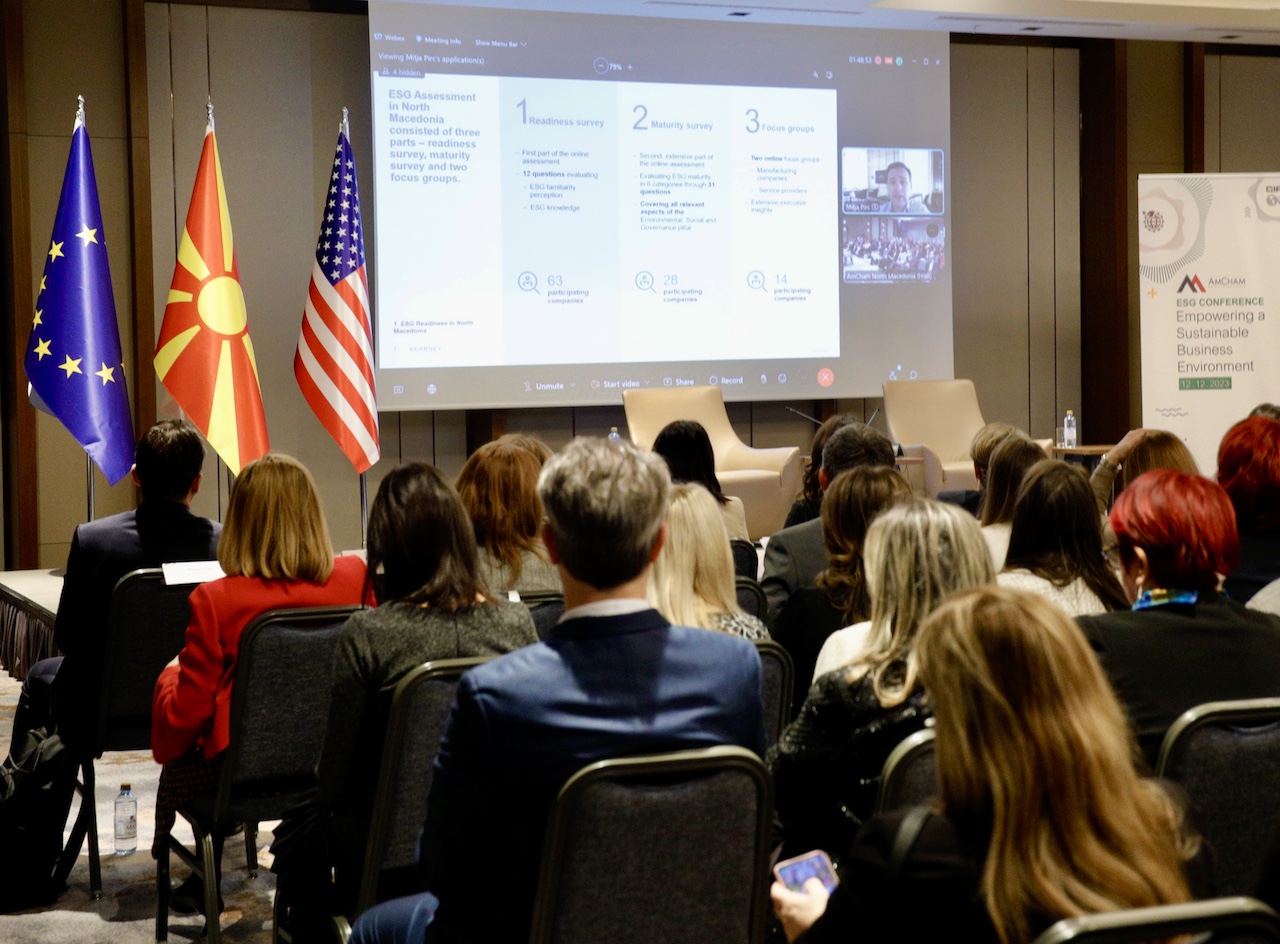
Pirc’s presentation served as an excellent introduction to the subsequent panel discussion, during which private sector representatives from Gentherm, Cementarnica USJE, and NLB Banka shared their best business practices related to ESG standards.
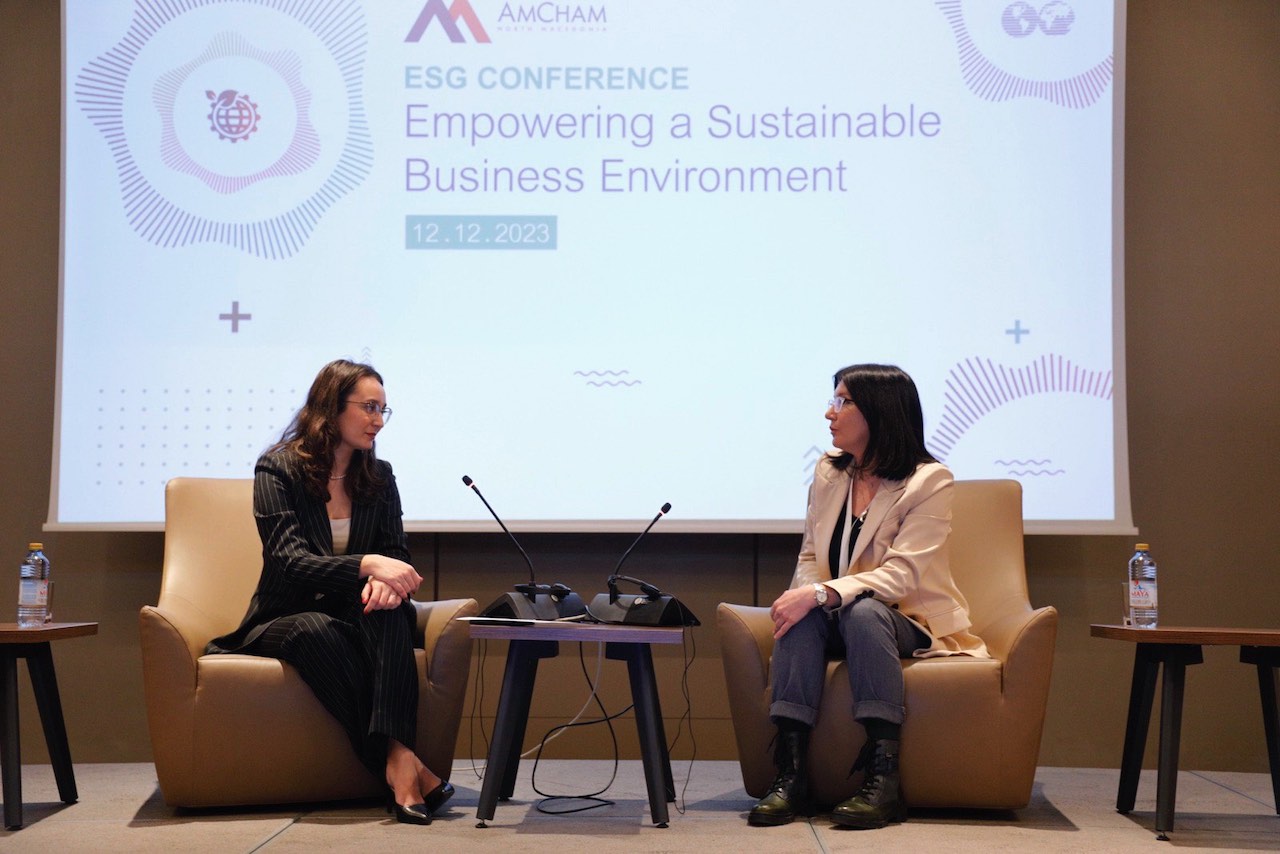
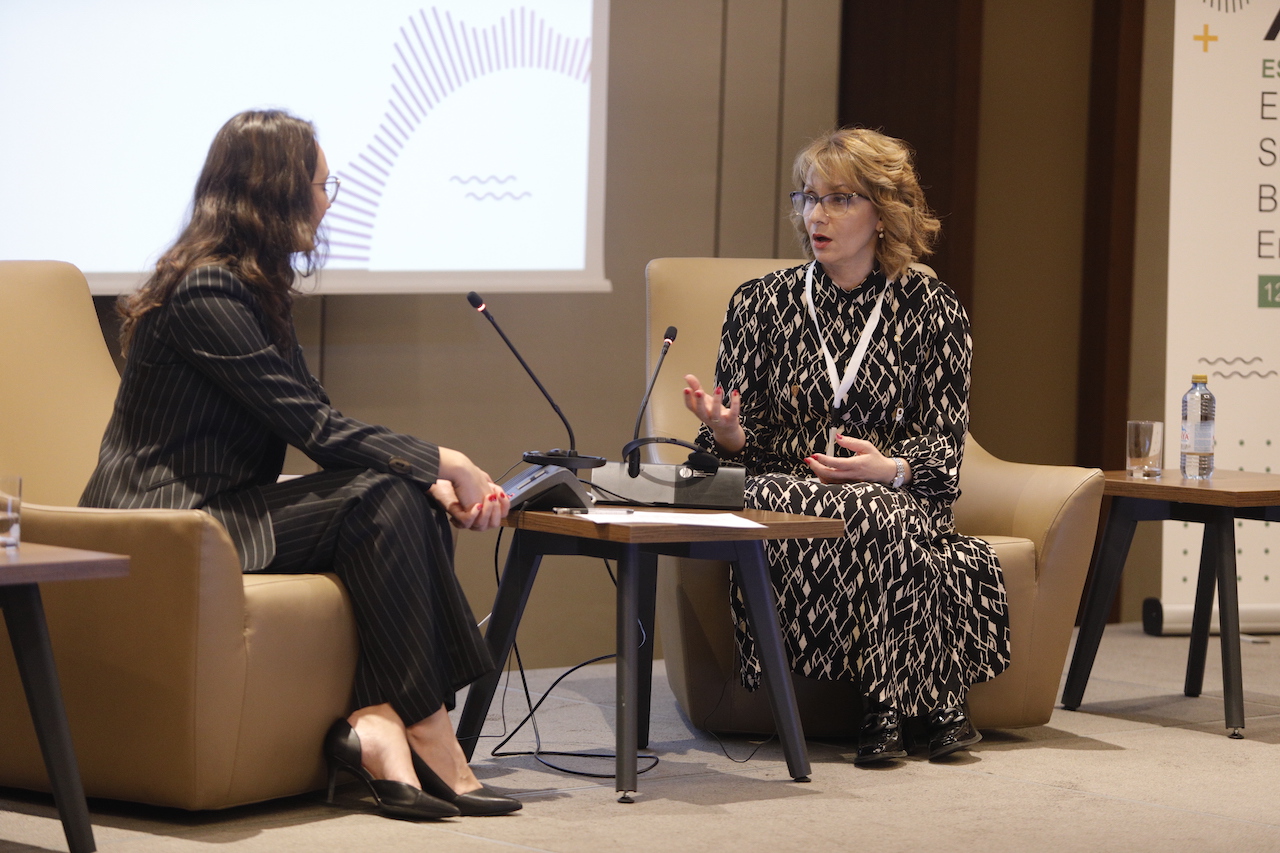
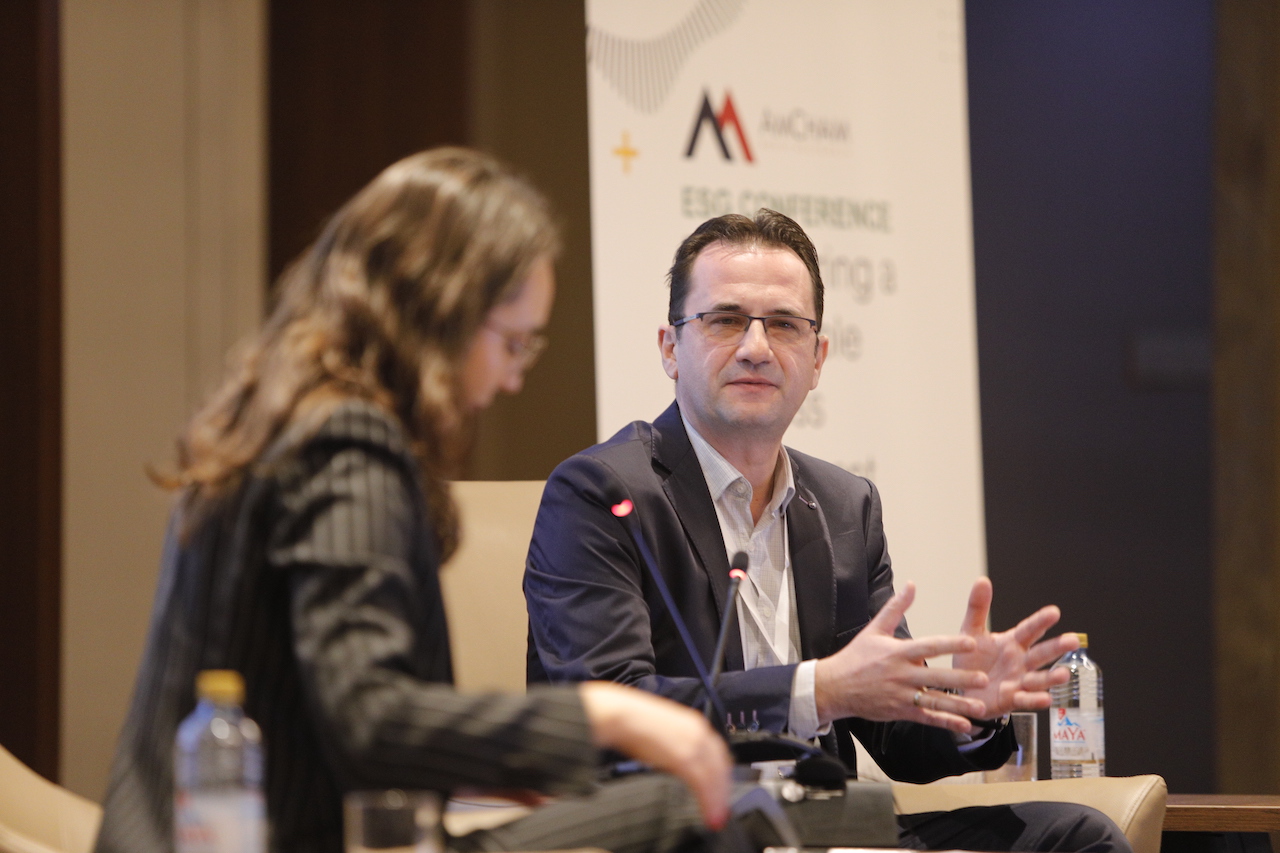
Following this, Maria Tsiadi, CEO of Impacta Consulting, gave a lecture providing an overview of the EU’s regulatory agenda for ESG standards and its relevance to the corporate sector in non-EU countries.
“These regulations, aimed at encouraging sustainable practices, regulating finance, and ensuring ethical corporate behaviour, are reshaping the global business landscape. Non-EU countries are compelled to adapt under this new regulatory framework, as companies operating internationally must adhere to these standards to effectively engage in the EU market. They must align their financial and corporate practices with the EU ESG criteria, causing a significant shift in the paradigm of international business norms and a growing global commitment to sustainable and socially responsible practices,” noted Tsiadi.
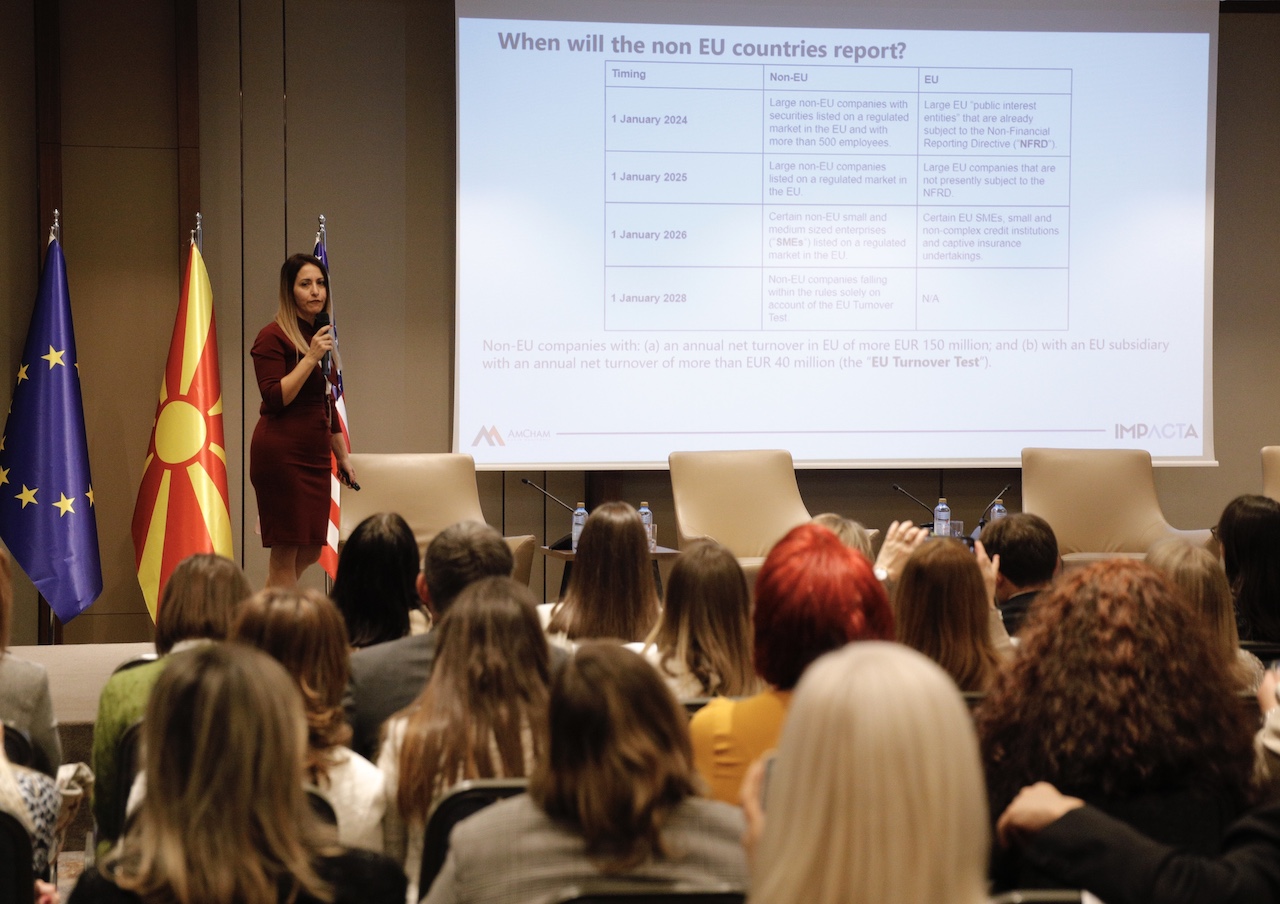
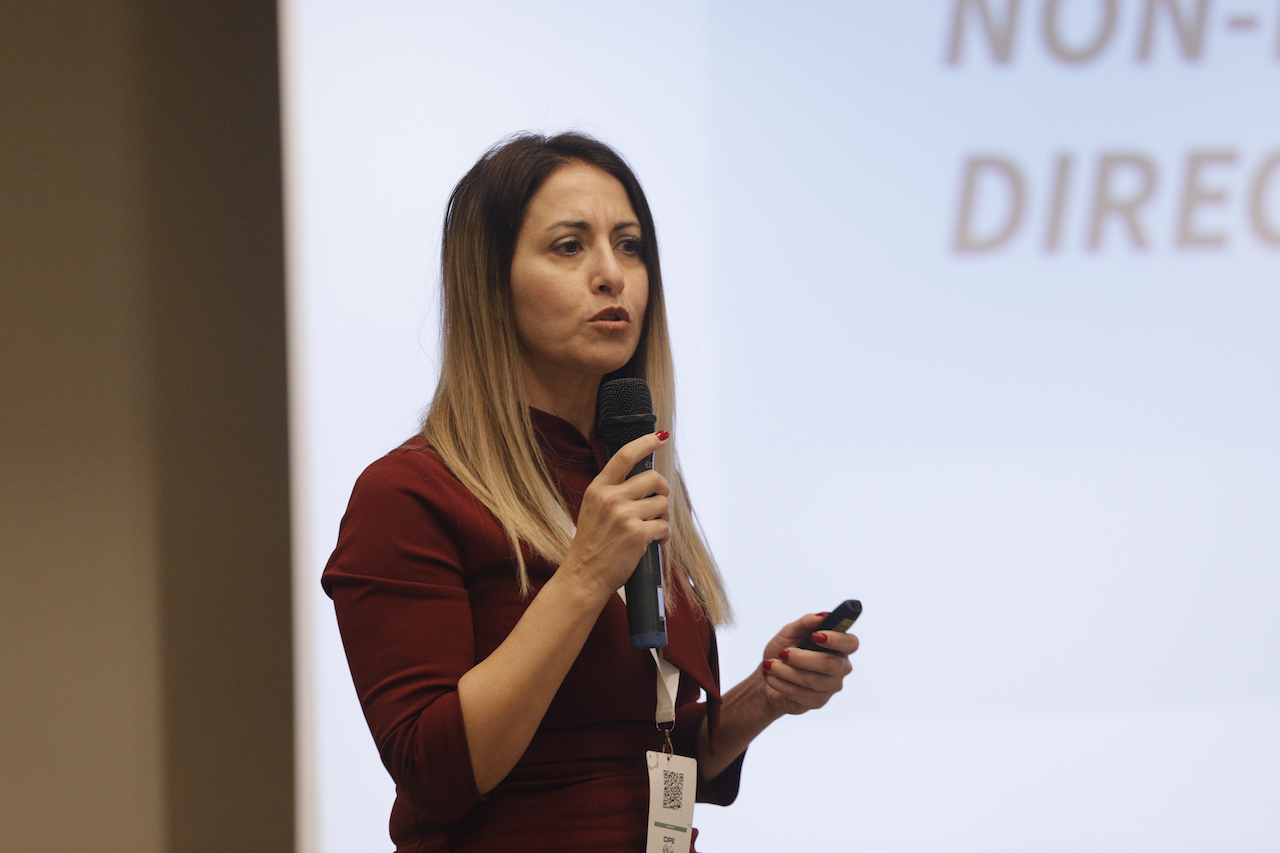
The discussion regarding ESG-related regulations in the Republic of North Macedonia continued with the participation of representatives from the National Bank, the Macedonian Stock Exchange, the Ministry of Finance, and the Ministry of Environment and Physical Planning (MOEPP) in the panel titled “Identification of key factors for establishing a suitable ESG environment.”
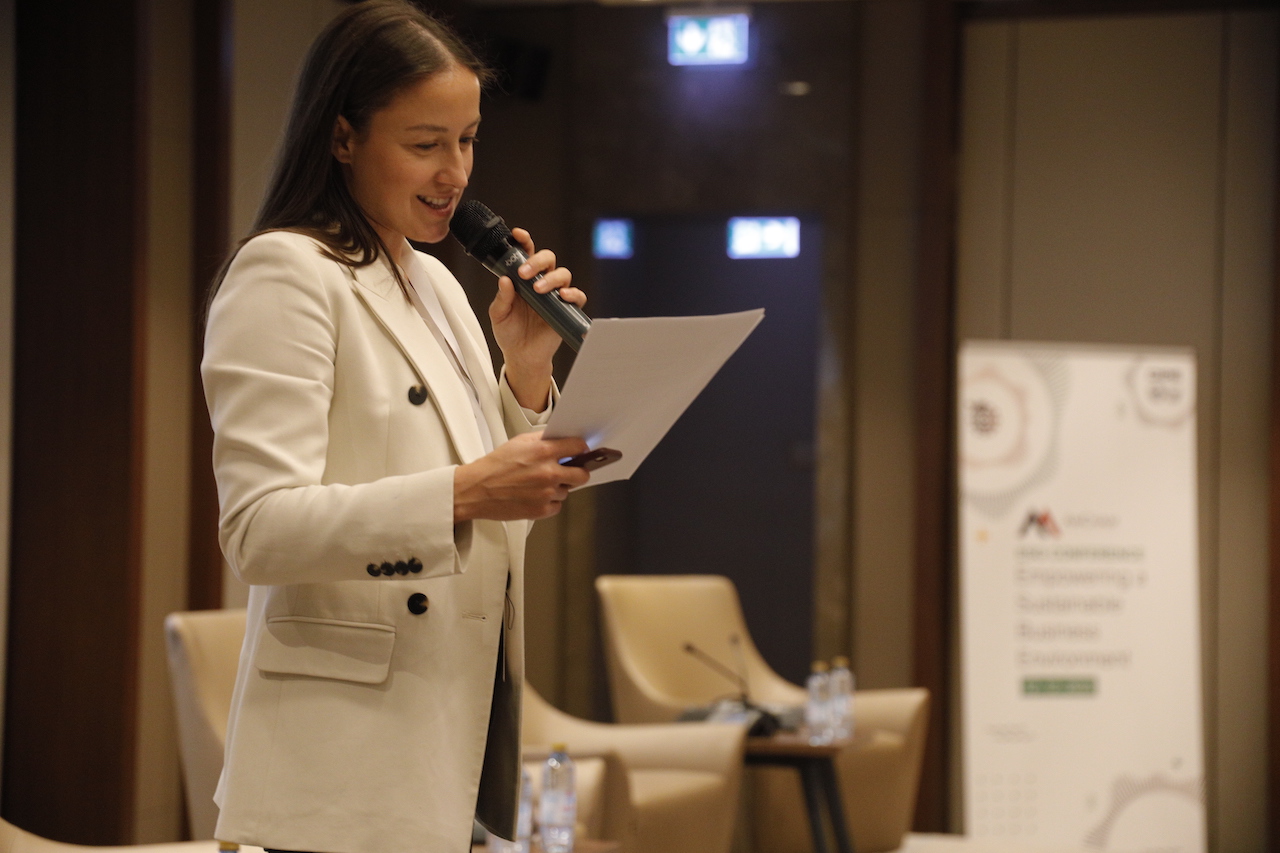
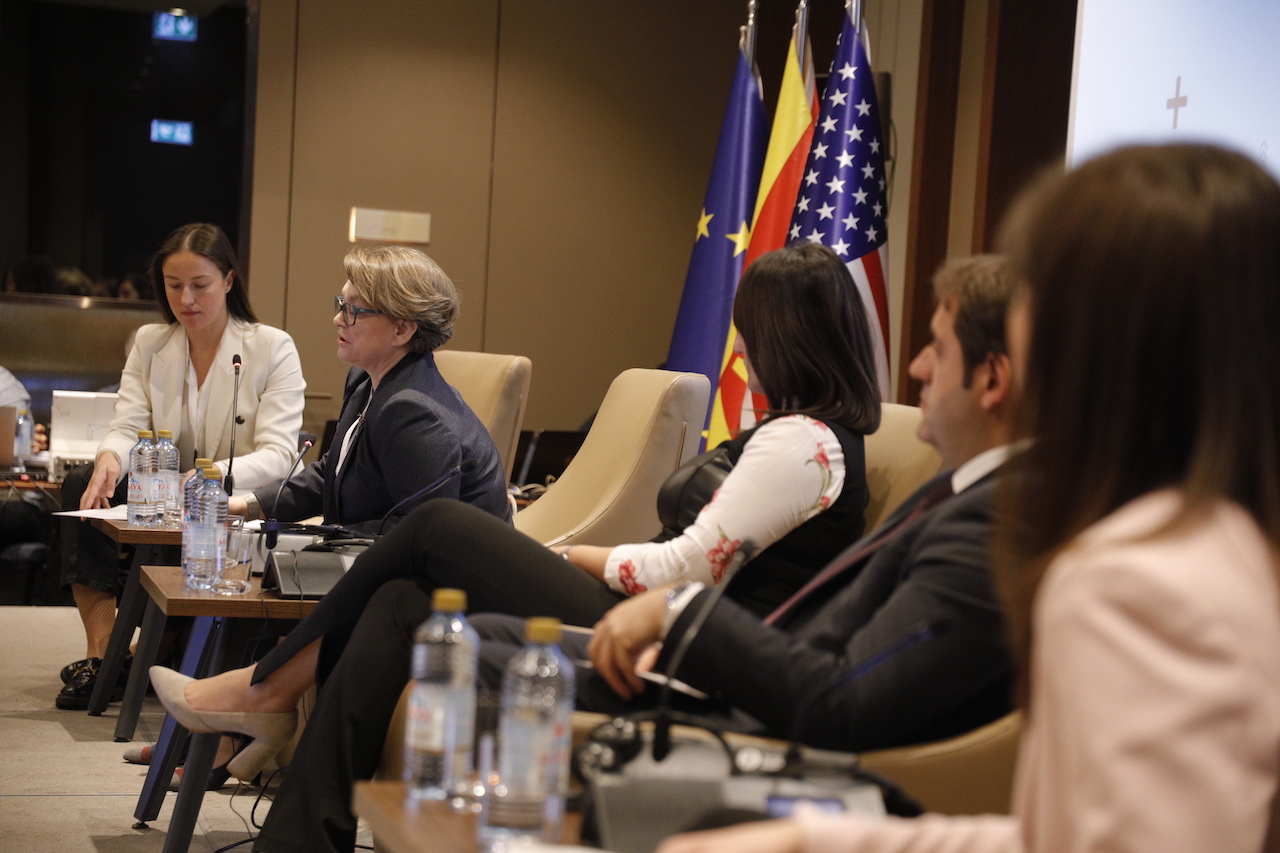
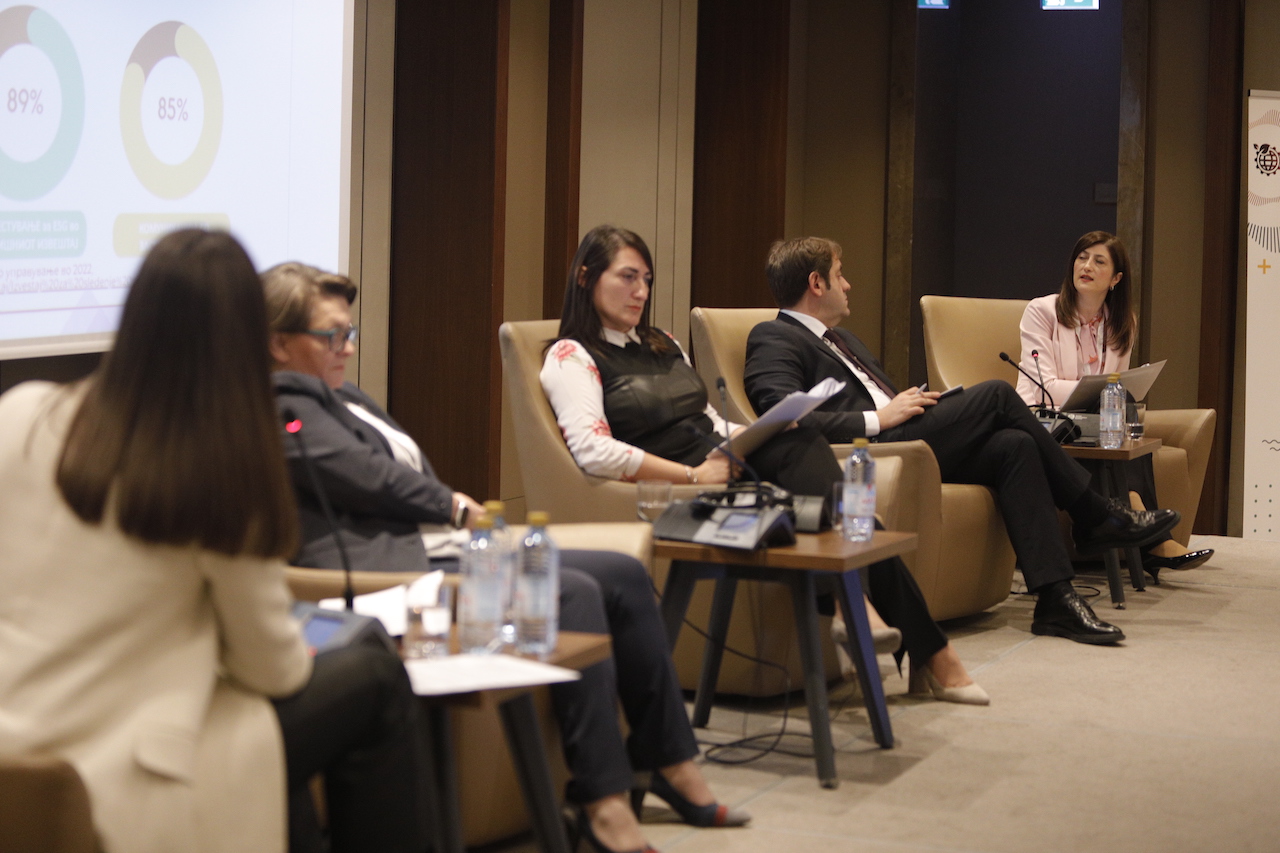
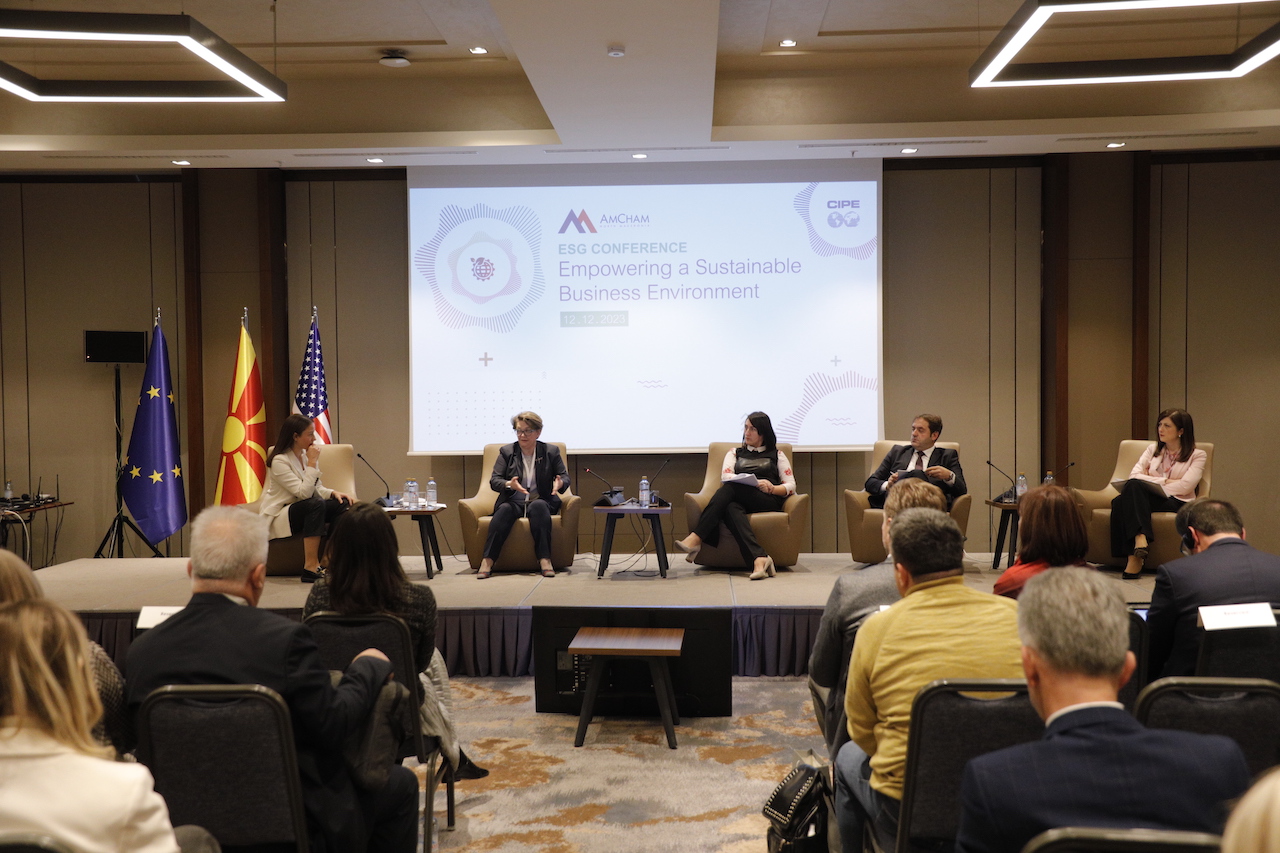
The last part of the conference was dedicated to networking and the exchange of opinions and perspectives between the present guests and experts from the public and private sectors.

